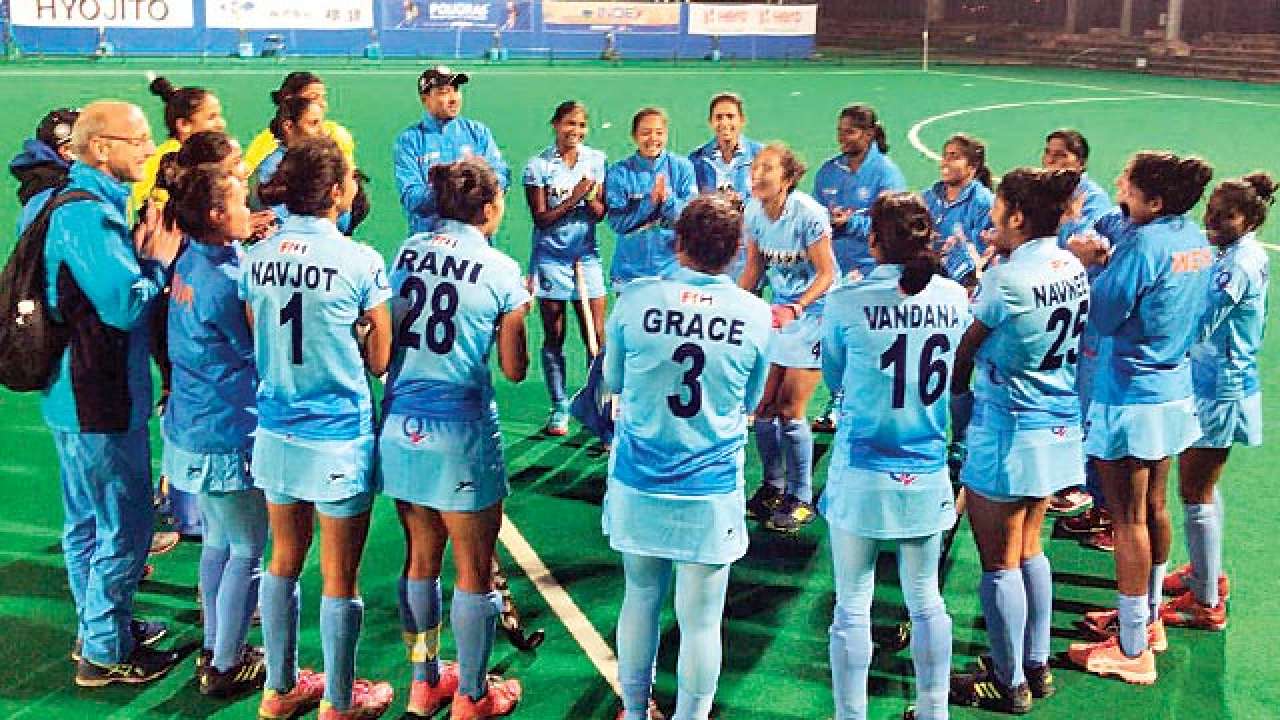
I'm not satisfied. This is just the beginning. There is a long way to go for us. No doubt, this was a very good start for the team as well as for me. We won every game convincingly, and remained unbeaten. So, this is a positive beginning. But for me, next year is really crucial. We have the Commonwealth Games, Asian Games and the World Cup, and when we enter these high-profile tournaments, we can go in saying that we are the Asian champions. So in that regard, this is a good morale-booster for the team.
Look, if I'm the coach, I don't go into a tournament just to participate. I go there to win, be it any tournament of any level of importance. For me, winning is a habit, and I want the girls to have the same mindset. I'm happy that the girls have bought into my thoughts in just a span on around a month. These girls had not tasted a title triumph for a long time. Now they have. And I want them to build on this.
When I had my first meeting with the girls after taking charge of the team, one of the things I told them was this: 'rankings are just numbers, nothing else. You want an example? Check the results of the 2016 Rio Olympics. The sides that won were not the top-ranked teams. Great Britain, who were the women's champions, were ranked 6th, and Argentina, the men's winners, were also sixth. So, rankings is just data, a theory that is only a piece of statistics. But it all depends on your mentality, and how you perform on the field on that particular day. Rankings will have no say then'.
I think the girls understood what I was trying to convey to them, and that's why it's no surprise to me that we beat two higher-ranked teams in this competition, and in big games too (Japan in semifinals and China in final).
Of course, saying all these things was easier than actually going out and doing it on the field. Words do not win you games, performances do. And that involves a lot of factors: skills, strategy and mindset. Once you have a mix of all this, it becomes a winning combination. Obviously, we still have a lot of things to improve upon. But the important thing for now is that the team has started believing it itself. The confidence is back in the girls, that they can score goals and win tournaments. You can see that by the number of goal-scorers we had in the Asia Cup.
Attacking style of hockey sounds good, looks good and feels good too. But the more crucial factor for me than playing attacking hockey is playing for the team. I made one thing very clear to the players: hockey is not about individuals. I told them I want many players to score goals. I do not want a situation where an individual scores four goals, catches everyone's attention, becomes the toast of the nation and yet, we end up losing. That sort of hockey has no place for me.
Self-belief, without a doubt. The belief that 'yes, we can win matches and win tournaments'. And win matches against anybody. The feeling has now started creeping into the team and because of that, the team played so well throughout the tournament. I saw the hunger in the team, I saw the winning mentality in the team. And I want it to continue and take it forward.
Yes, surely. This team is very much capable of beating anybody. And this is not just loose talk. You cannot jump into the ocean if you don't know swimming. These girls know how to play quality hockey, and now with the self-belief in them, you will see the results going forward. We beat Asian teams, and we are Asian champions now. We can also beat European teams, and become world champions in the future. But it's a step by step process.
Mission 2018 has already started, and it will convert into reality in 2020 (Olympics). I'm focussed on the three big tournaments next year, which are Commonwealth Games, Asian Games and World Cup. My goals are clear for that: I want the team to reach the final in two of these competitions, and win gold in one.
Oh, lots of changes. Not just for the players, but for myself as well, going from coaching men's teams to a women's team. I feel I have adapted well to the changes. I look at all of these girls as my daughters. The one thing that I have admired the most about this team since taking over is the girls' focus and discipline. I am a strict disciplinarian. And thankfully, I didn't have to struggle much in that area.